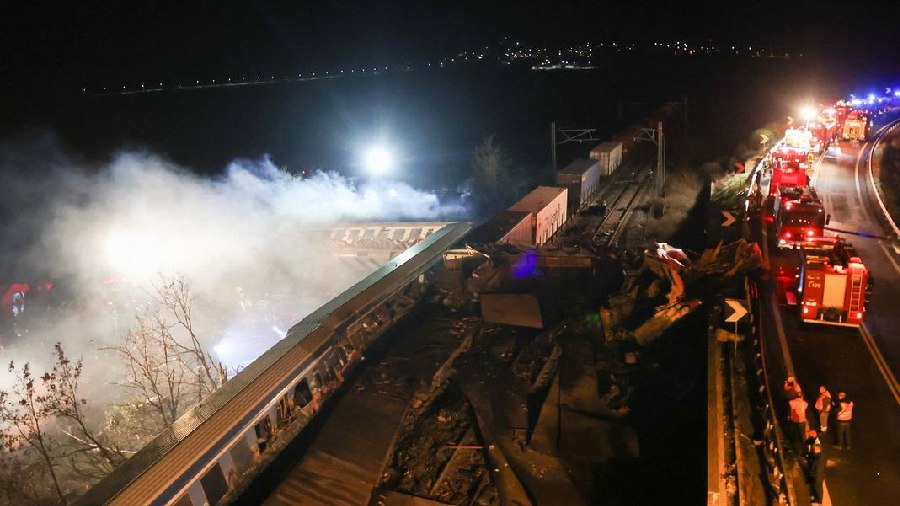After years of pandemic-forced cancellations, Athens last weekend hosted carnival, and scores of Greeks flocked in to celebrate.
Vaios Vlachos and his girlfriend, who dressed up as marble busts, were among them before they rushed to catch a night train on Tuesday that would get them home in time for work the next morning. But shortly before midnight, the train that they and hundreds of others were travelling on collided with a freight train near Tempe, in northern Greece, killing 47 people, the worst train crash in the country’s history.
Vlachos, 32, was still missing as of Wednesday night, and his girlfriend was in an intensive care unit.
“It’s wrenching,” said Vlachos’s brother, Evangelos, adding that as time passes, he loses hopes of finding his brother alive.
“Every hour feels like poison.”
Greece is expected to hold a general election in the coming weeks, and although it was not yet clear if or how the accident would influence it, there were signs that the crash was reverberating in a country that has the worst train safety record in Europe.
On Wednesday in Athens, protesters clashed with the police outside the headquarters of Hellenic Train, the company responsible for maintaining Greece’s railways. Demonstrations were also reported in Larissa, near the site of the crash, and Thessaloniki, to the north.
The Panhellenic Federation of Railway Employees declared a 24-hour strike, so no trains were running on Thursday in Greece. The passenger train was carrying about 350 people, and 57 are still hospitalized, including some in intensive care. It is unclear how many people are unaccounted for.
Greece’s health minister, Thanos Plevris, said that many of the passengers were young people or college students who had possibly been taking advantage of a three-day bank holiday weekend to celebrate carnival, the period of revelry just before Lent. Thessaloniki, the train’s destination, is Greece’s second-largest city, and it is known as a university city hosting tens of thousands of students.
On Wednesday night, Georgios Smirnopoulos, a taxi driver in Thessaloniki, drove by the city’s Aristotle University, the country’s largest, and pointed at it, wondering if any of the crash victims studied there. “It was a lot of students, of young people,” he said.
“Today is a tragic day.” Vlachos and his girlfriend, who have been together for years, headed to the capital with their handcrafted costumes.
They usually travel between Athens and Thessaloniki by car, Vlachos’s brother said, but higher gas prices had prompted them to instead take the train.
“To save money,” Vlachos said. “And because they thought it was safer.”
New York Times News Service










